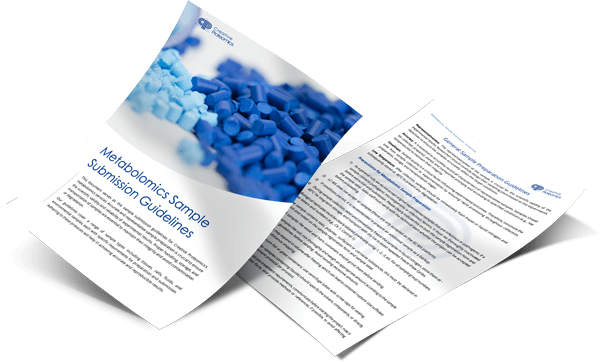
Vitamin A is also known as anti dry eye vitamin, which is one of the necessary nutrients for human beings. Vitamin A belong to a group of unsaturated nutritional organic compounds, which includes retinol, retinal, retinoic acid, and several proVitamin A carotenoids and the most notably is beta-carotene. Vitamin A is discovered in 1816, the physiologist named François Magendie observed that dogs developed corneal ulcers and had a high mortality rate due to the depriving of nutrition. In 1912, Frederick Gowland Hopkins demonstrated that there are unknown accessory factors existing in milk, which is not the carbohydrates, proteins or fats were necessary for growth in rats and Hopkins received a Nobel Prize for this discovery in 1929. The "accessory factors" were termed "fat soluble" in 1918 and later were termed as "Vitamin A" in 1920.
Scientists at Creative Proteomics utilize a highly quantitative method with high-performance liquid chromatography (HPLC) for the determination of Vitamin A levels in various samples, including Tissue and more. High-Performance Liquid Chromatography (HPLC) with UV detection is used for the determination of Vitamin A (325 nm) levels in a lot of biological samples. This Methodology provides accurate, reliable, and reproducible results of Vitamin A measurement, which enables us to analyze of Vitamin A levels in vitro and in vivo.
Vitamin A has multiple functions, for example, it is important for growth and development. It also plays an important role in maintenance of the immune system and good vision. Vitamin A is necessary by the retina of the eye in the form of retinal, which combines with protein opsin to form rhodopsin, which is the light-absorbing molecule and is necessary for both low-light (scotopic vision) and color vision. Vitamin A also has function as retinoic acid, which is an irreversibly oxidized form of retinol and is an important hormone-like growth factor for epithelial and other cells.
The Russian-Polish botanist M. Tswett is generally recognized as the first person to establish the principles of chromatography. In a paper he presented in 1906, Tswett described how he filled a glass tube with chalk powder (CaCO3) and, by allowing an ether solution of chlorophyll to flow through the chalk, separated the chlorophyll into layers of different colors. He called this technique “chromatography”. Fundamentally, chromatography is a technique used to separate the components contained in a sample. High Performance Liquid Chromatography (HPLC) is a method able to separate non-volatile, thermally unstable, and polar components separate or in a mixture. HPLC is a type of chromatography that, because of its wide application range and quantitative accuracy, is regarded as an indispensable analytical technique, particularly in the field of organic chemistry. It is also widely used as a preparation technique for the isolation and purification of target components contained in mixtures.
Vitamin A Analysis Service at Creative Proteomics supports your research in Vitamin A Analysis. HPLC Based Analysis Service Platform enable us at Creative Proteomics offers you a state-of-the-art Analysis Service.
Sample Type
Tissue and more
Method
High-Performance Liquid Chromatography (HPLC) with UV detection is used for the determination of Vitamin A (325 nm) levels in a lot of biological samples. This Methodology provides accurate, reliable, and reproducible results of Vitamin A measurement, which enables us to analyze of Vitamin A levels in vitro and in vivo.
Send us your samples, you will get all information that you need!





